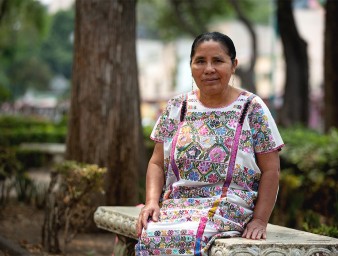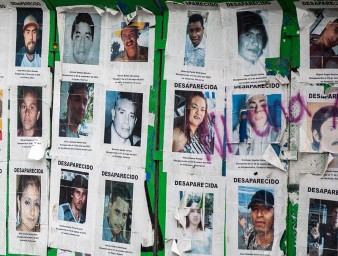Mapping and addressing threats to civic space online
20 June 2023

For the past three decades, the internet and other digital technologies have revolutionized the way people access and share information, form their opinions, debate, and mobilize.
In recent years, however, these transformative technologies that have played a significant role in advancing human progress and contributed to the promotion and protection of human rights have also been used to spread hate speech, harass or silence dissenting voices and provide State and non-state actors with new ways to target critics and competitors, and undermine democracy.
Threats to online civic space
In a 2020 report to the Human Rights Council, UN Human Rights highlighted that Governments, particularly in Africa, Asia and the Middle East, have frequently put in place measures, such as internet shutdowns, that intentionally prevent or disrupt the access to, or the dissemination of, information online.
A newly released report analyses the human rights impacts of new technologies on civic space in South-East Asia. The rapid expansion of digital communications in the region has brought with it new challenges for those engaging in public debate: the spread of incitement, organized online campaigns targeting civil society actors, and the rapid expansion of surveillance.
Harmful online trends in South-East Asia
- The spread of hateful, misogynistic, and discriminatory content
- Organized and coordinated online attacks and harassment
- Technologies of surveillance
- Restrictive legal and regulatory frameworks
- Criminalization and prosecution of online expression
- Internet shutdowns and network interference
The report also draws attention to the numerous new laws and regulations governing online space in South-East Asia, some of which appear to reinforce and expand pre-existing restrictions on freedoms of expression, association, and privacy.
These new laws, the report states, are having significant and often adverse implications for journalists, human rights defenders, bloggers, environmental and social activists, and civil society organizations. These range from the disruption of their work, financial duress, personal threats and attacks, arrest and detention, judicial harassment and criminalization, enforced disappearances, and forced closure of civil society organizations.
“The threat landscape [in South-East Asia] is slightly different for each country but, fundamentally, the issues that we are seeing are a reflection of repressive measures which have been ongoing in the region and also across the global landscape,” said Dhevy Sivaprakasam, a Senior policy counsel leading Access Now’s work in South-East Asia. Access Now is a leading organization that works to defend people’s digital rights.
“One thing that we are seeing is clamping down on freedom of expression on social media platforms, and part of the reason for that is because it has given for many of these countries a space, which wasn’t available before, for people to express their opinions,” she said. “We are also seeing that governments are looking at and building on each other’s authoritarian tactics.”
This report is the first of its kind to map out, purely from a human rights perspective, what is a new landscape of digital threats to civic space in South-East Asia.
“Other regions, such as the Middle East, to a certain extent, have had activists coordinate more significantly in the digital rights space because of ongoing concerns their human rights defenders have been fighting,” Sivaprakasam added.
"South-East Asia has traditionally been weak on that front with not as many local human rights organizations with expertise and knowledge of digital rights, though in recent years this is changing, with groups organizing to tackle these pressing issues.”
The report provides a series of recommendations to both States and businesses, calling also on the Association of South-East Asian Nations’ Intergovernmental Commission on Human Rights and National Human Rights Institutions to play a critical role in ensuring human rights are protected in the digital domain.
Activists and their online safety
In Iraq, following a massive crackdown on the Tishreen demonstrations across many parts of the country in 2019 and 2020, human rights defenders and activists raised serious concerns with the Human Rights Office of the UN Assistance Mission for Iraq (UNAMI) about online threats and the hacking of their social media accounts by unidentified actors.
These attacks, they said, were in retaliation for their human rights work or because they had made demands for accountability for the human rights violations and abuses they endured during the crackdown. They appeared to have the objective of silencing protesters and activists, adding to an atmosphere of fear and intimidation to discourage others from engaging in protests.
As a result, many of these activists, including women, limited their protests online and offline.
In response, UNAMI’s Human Rights Office initiated a project in partnership with the Iraqi Network for Social Media (INSM) to provide practical training to human rights defenders, activists, journalists, bloggers, and lawyers on how to safely manoeuvre through cyberspace. Before the start of the programme, INSM performed a digital wellness check on 25 civil society organizations to assess their level of protection online.
“
We concluded that 70 per cent of these organizations were high risk because they did not have the fundamentals of digital security
“
Hayder Hamzoz
Hayder Hamzoz is a leading digital rights defender and team leader at INSM. “They did not have a digital security policy, they used weak devices without original operating systems, as well as other issues. After the first phase of training, they realised that digital security and privacy are not only important for their work but also for their safety online and offline.”
Now approaching its third phase, the training programme has focused on improving digital security and increasing knowledge and awareness of digital rights in Iraq. Participants were introduced to practical tools to strengthen the safety of their digital environments, including communication, data storage, as well as protection from hacking. They also participated in a session on how to identify and counter hate speech.
Since December 2021, some 330 people from different parts of Iraq, many of whom are women, have been trained, including 15 participants selected to become trainers and replicate training activities, best practices, and share tools more widely in their own communities.
Among those passing the baton is Rana Husam Yasin Al-Nuaimy, a human development and gender-based violence trainer from Mosul, northern Iraq.
“Because I experienced my page being hacked, after I received training from INSM, I took it upon myself not to let any woman after me be hacked or subjected to electronic blackmail,” she said.
Al-Nuaimy focused on training other women human rights defenders in her community who, like herself, had been targeted online because of their work against gender-based violence. She taught them how to protect their accounts, secure their confidential files on their devices, and how to prevent their social media accounts from being removed or usurped.
Moreover, in October 2022, the UNAMI’s Human Rights Office and INSM launched a user guide on digital security for Iraqi human rights defenders. The work of the Mission’s Human Rights Office on digital security and digital rights is being reviewed by other UN Human Rights presences on the ground to be replicated.



